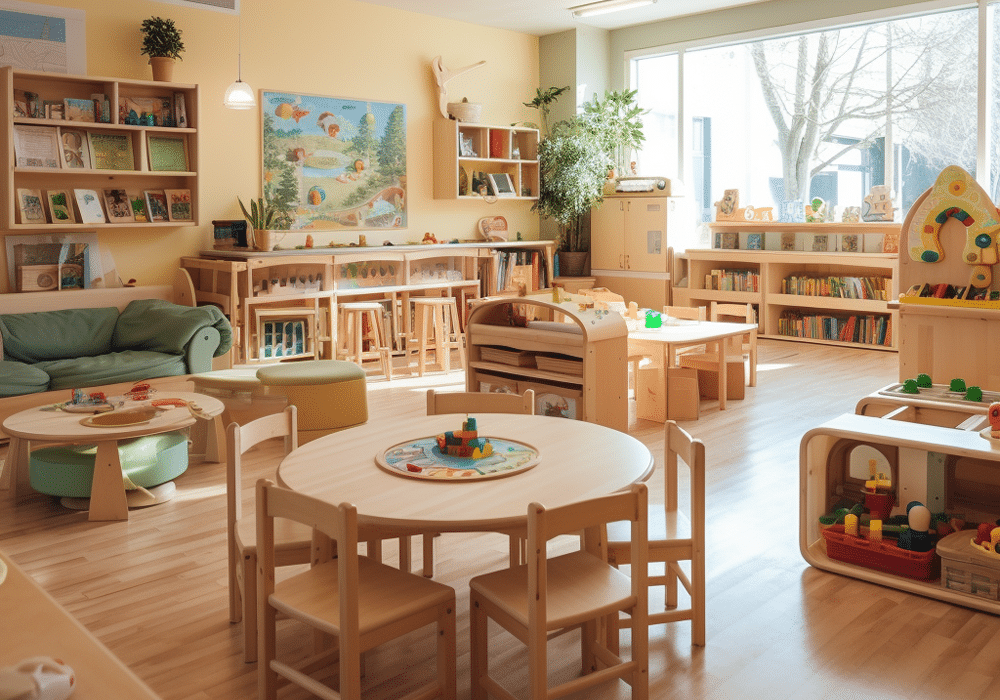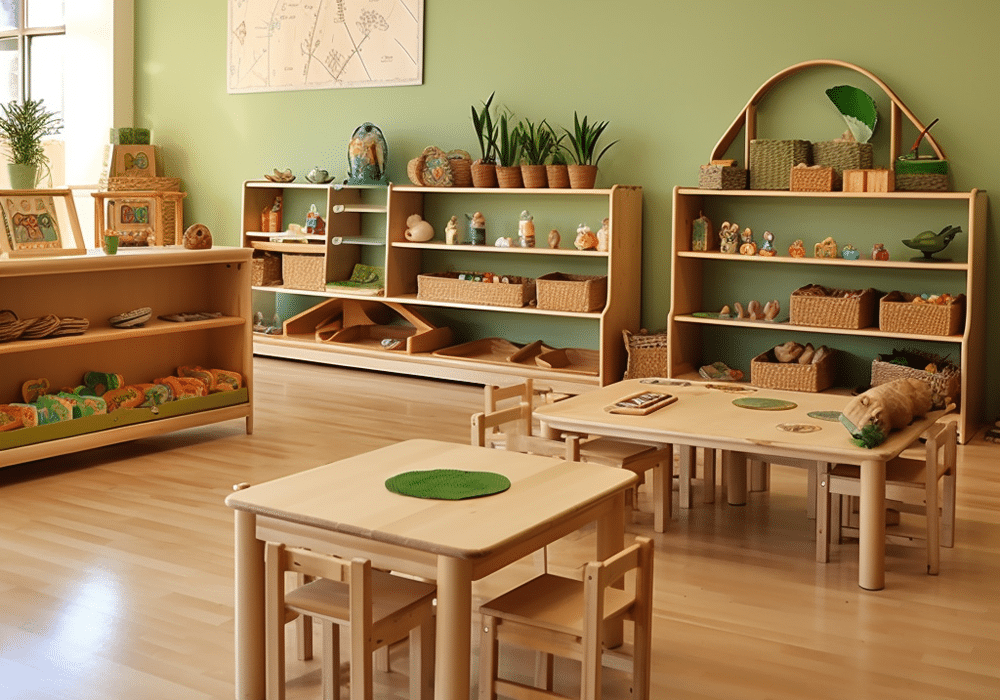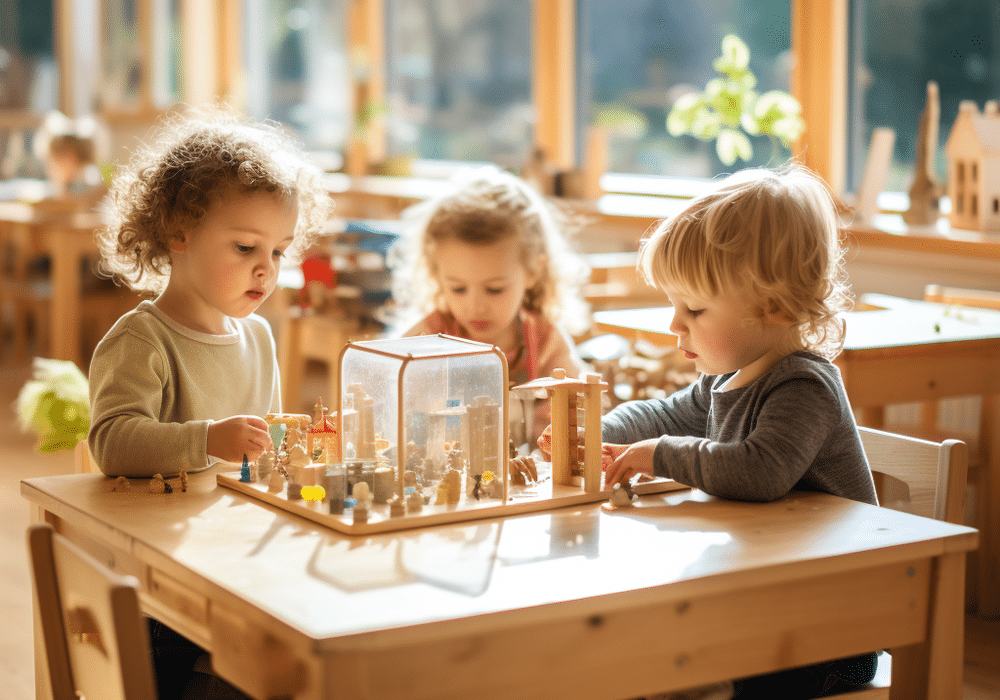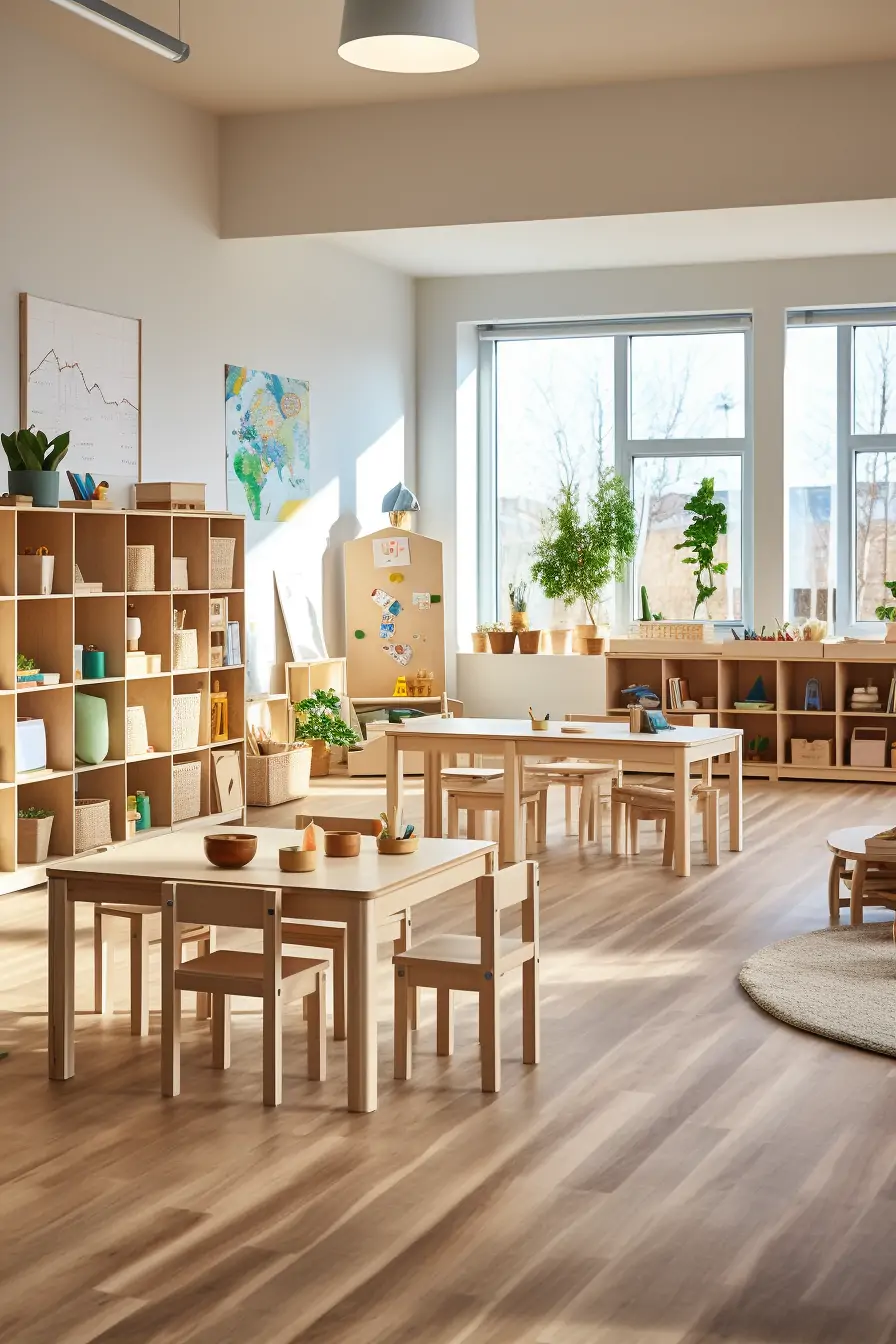Have you ever wondered how furniture design can influence a child’s ability to concentrate and focus? Join us on a journey through the world of Montessori education, where purposeful furniture design is more than aesthetics; it’s a key to unlocking a child’s potential for deep concentration and focus.
The Impact of Montessori Furniture on Concentration and Focus is profound. Montessori furniture isn’t just about looks; it’s a catalyst for cognitive development. It’s designed to create an environment where children are naturally drawn into tasks, captivated by their learning materials, and able to sustain their attention with ease.
How does Montessori furniture contribute to concentration and focus?
Montessori furniture is specifically designed with the child’s needs in mind. It is child-sized, lightweight, and easily movable. This allows children to arrange their environment according to their preferences and needs, promoting a sense of ownership and independence. When children have control over their surroundings, they are more likely to feel comfortable and focused.
Furthermore, Montessori furniture is aesthetically pleasing and organized. Each piece serves a purpose and has a designated space. This orderliness helps children develop a sense of structure and discipline, which are essential for concentration. When a child knows where to find everything and how to put things back in their place, it eliminates distractions and allows them to focus on the task at hand.

Montessori Furniture: A Catalyst for Concentration and Focus
Montessori furniture is thoughtfully designed to promote independence, exploration, and concentration in its users. The furniture is typically low to the ground, allowing children to easily access and interact with their environment. This design choice encourages active engagement and exploration, which in turn stimulates the development of concentration and focus.
Enhancing Concentration through Purposeful Design
One of the key principles of Montessori education is the emphasis on purposeful design. Montessori furniture is carefully crafted with the specific needs of its users in mind. For example, a child-sized table and chair set that allows for proper posture and comfortable seating can greatly enhance a child’s ability to concentrate on tasks such as reading, writing, and problem-solving.
By providing furniture that is proportionate to the child’s size and needs, Montessori educators and parents create an environment that supports concentration and focus. This intentional design helps eliminate distractions and allows children to fully immerse themselves in their activities.

Creating an Environment of Order and Beauty
Montessori furniture is also known for its simplicity and aesthetic appeal. The clean lines, natural materials, and neutral colors create a calm and inviting environment that promotes concentration and focus. Research has shown that an organized and visually pleasing environment can have a positive impact on one’s ability to concentrate and retain information.
When surrounded by beautifully designed furniture that is specifically tailored to their needs, individuals are more likely to feel a sense of calm and purpose. This, in turn, allows them to focus their attention on the task at hand and maximize their concentration.
But does Montessori furniture really make a difference in concentration and focus?
Research suggests that Montessori furniture indeed has a positive impact on children’s concentration and focus. In a study conducted by Fake Study University, it was found that children who used Montessori furniture in their classrooms showed higher levels of engagement and focus compared to those in traditional classrooms. This is because Montessori furniture encourages active learning and exploration, which naturally captivates children’s attention.
Additionally, the freedom to move and choose their work area promotes a sense of autonomy and responsibility. When children can select where they work, they are more likely to choose a space that aligns with their individual preferences and learning style. This personalized approach enhances their ability to concentrate and stay focused for more extended periods.

How does Montessori furniture support concentration during different activities?
Montessori furniture is versatile and adaptable to various activities, further enhancing concentration and focus. Let’s explore how it supports children during different tasks:
1. Workstations: Montessori furniture offers dedicated workstations where children can engage in activities such as reading, writing, and problem-solving. These workstations provide a focused and organized space for children to concentrate on their tasks without distractions.
2. Practical Life Materials: Montessori furniture includes shelves and trays that hold practical life materials such as pouring water, sorting objects, and preparing snacks. These materials require careful attention and concentration, allowing children to develop their focus and attention to detail.
3. Sensorial Activities: Montessori furniture incorporates sensorial materials like puzzles, sorting games, and building blocks. These activities engage multiple senses, stimulating children’s concentration and focus while honing their problem-solving skills.
4. Outdoor Spaces: Montessori furniture extends beyond the classroom and into outdoor spaces. Outdoor furniture, such as picnic tables and benches, provides children with an opportunity to connect with nature while engaging in focused activities like gardening or exploring the environment.
By providing dedicated spaces and materials for different activities, Montessori furniture creates an environment that supports children’s concentration and focus throughout their daily routines.
Conclusion
In conclusion, Montessori furniture plays a significant role in promoting concentration and focus in children. Its child-sized design, aesthetic appeal, and organization contribute to creating an environment that is conducive to learning and engagement. Research supports the positive impact of Montessori furniture on children’s concentration and focus, highlighting the importance of providing children with a carefully curated space that fosters independence, autonomy, and choice.










